The weekly news is up! Please watch, enjoy, and mail in your comments to the station!

by Mx. Kris Vyas-Myall
Television and Films over the last few years have been littered with spies. Many of them have been forgettable but one was ahead of the pack: Danger Man.
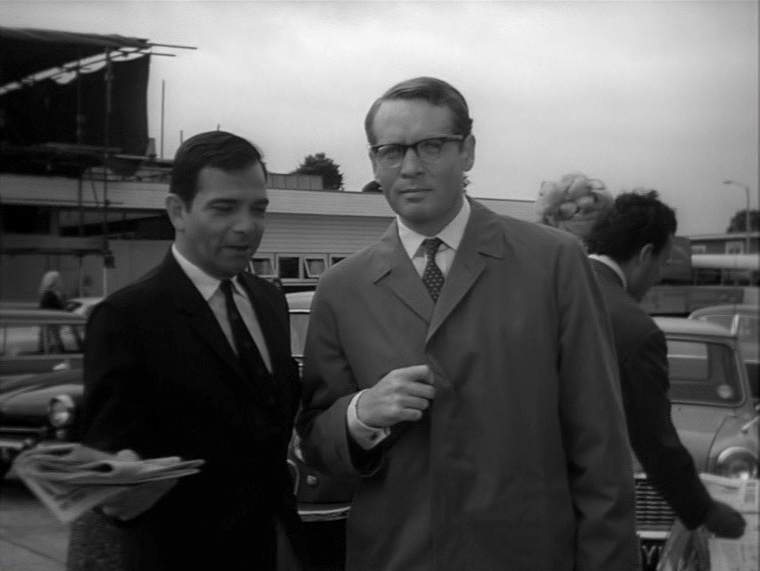
Starring the brilliant Patrick McGoohan as John Drake, it took a more cynical and grounded look at the world of secret agents, compared with the more fantastical exploits of James Bond or John Steed.
We were meant to be getting a new series of Drake’s adventures, produced in full colour for the American market. Instead, we heard, he was concentrating on a new espionage series, The Prisoner. I had expected some cross between the former show and The Fugitive. What we got was quite different.
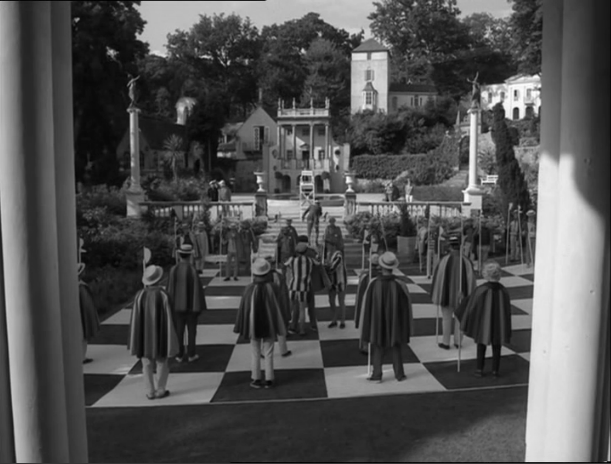
After resigning, the un-named McGoohan is transported to a village. There he is assigned the Number Six and the authorities try to either probe him for information or get him to do their dirty work. So far this could have been an episode of Danger Man similar to "Colony Three". But there are much stranger elements.
Firstly, the whole village is not simply an island prison, it has the unnerving sense of enforced jollity. Which makes it more unnerving. I found myself reminded of the planet in Doctor Who’s Macra Terror, with both having that holiday camp feeling with dark tensions underneath.

Then, we have Rover, the Village’s loyal “Attack Bubble”. It should not be scary for a giant roaring soap sud to be scary, but the way that people are trapped within it, straining to get out makes for a terrifying image.
There is also the governance of The Village, where (in spite of a system of elections and councils) the power lays with “Number Two”, a figure who changes each week (or even multiple times in a week) with their own different experiments.
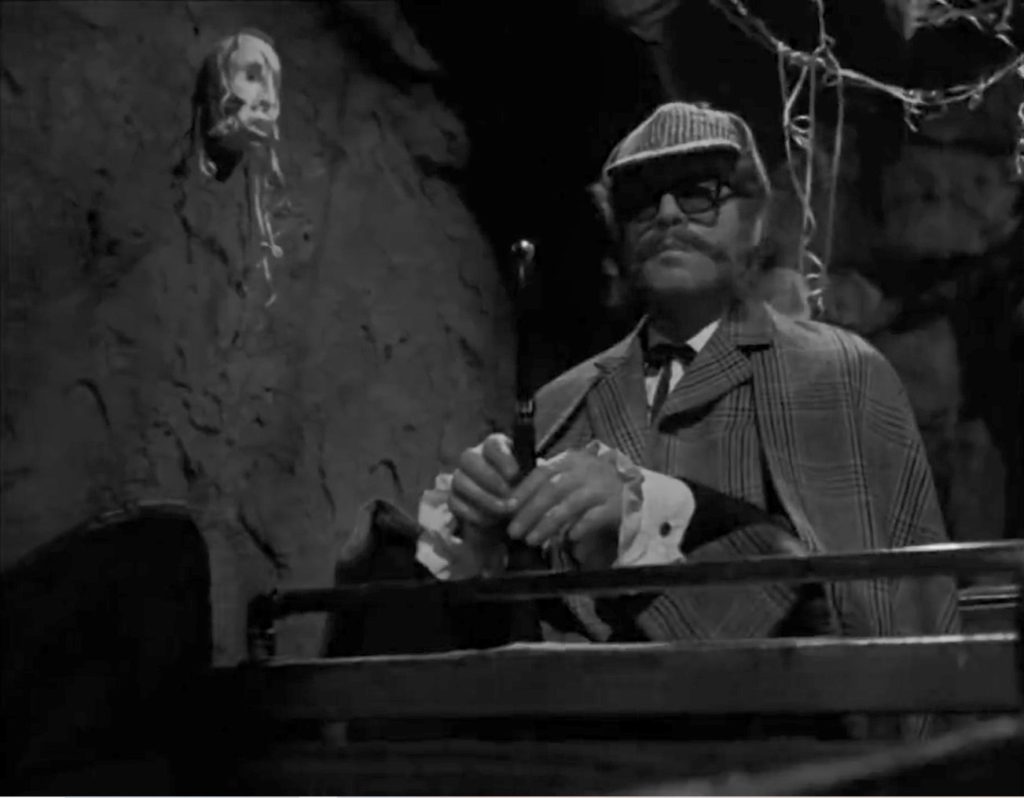
As the series progresses it gets stranger in its plots. We have duplicate number sixes, dream journeys, trips to Old West, not to mention the world’s strangest martial arts. Over the seventeen episodes McGoohan moves us from a man trying to escape into the surreality we would more expect from The Corridor People or Do Not Adjust Your Set.

These offbeat choices may have put some people off but I enjoyed them, albeit with a couple of caveats. It would sometimes go too much into trying to be direct satire, rather that something more broad and nebulous, particularly in McGoohan’s directed episodes. These tended to work less well as it felt like to author was trying to pontificate to the audience and never gave a sense that this world had an existence outside of serving these points.
The other, is that, all these choices played against trying to give a solid finish to the story. For example, we are shown two characters and told that they both represent forms of rebellion. One we are not sure if we have seen before (the actor appeared previously but the character may be new) and the other only a couple of times in a position of authority. In a less experimental format I could see these challenges being overcome and a tighter solution put together.
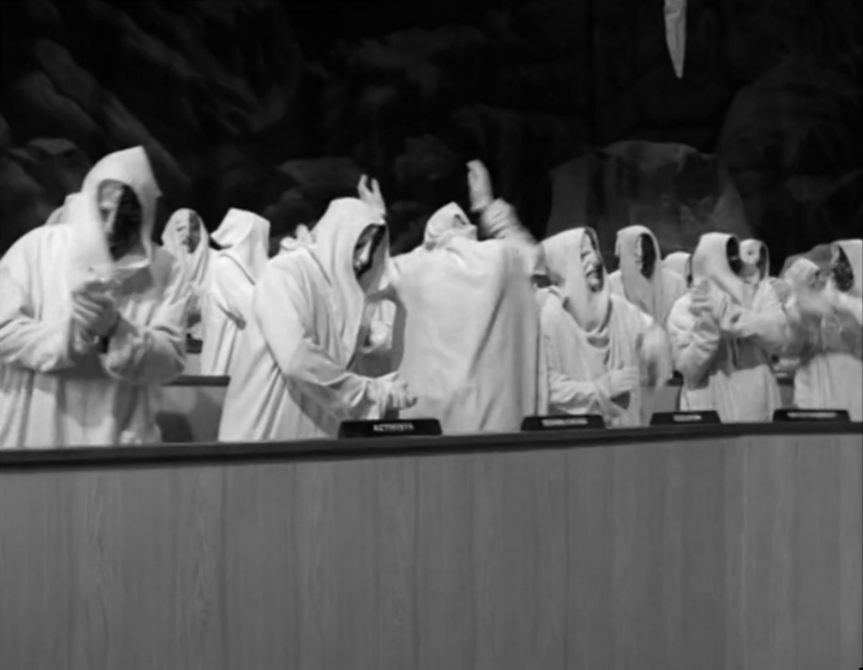
However, as an experiment it is still one I enjoyed seeing and exploring the fascinating setup from McGoohan and co.
A high four stars

by Fiona Moore
Lots of people who tuned in to The Prisoner and watched to the end are, apparently, disappointed. Those people are missing the point. The Prisoner isn’t a spy series, or an sf series, or a metaphor… and yet, it is all of those things. The Village is a real place… and yet it’s also a state of mind, a cloying conformity that, as the series itself demonstrates, could be found in London or the Wild West as much as in Portmeirion, where the series was actually filmed. The point many critics are missing is, The Prisoner is first and foremost a Rorshach test.
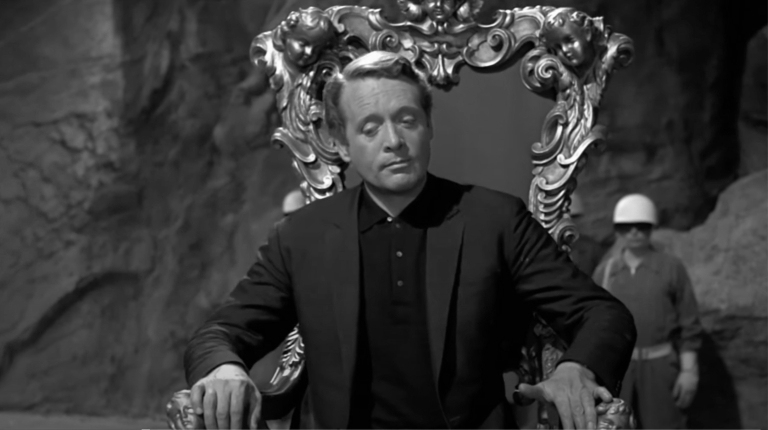
Make of him what you will.
Even the most straightforward episode of The Prisoner can be interpreted through multiple lenses. Want to see it as a spy series, a kind of Manchurian Candidate with extra surreal elements? As a spoof of spy series, dialling the conceits of Danger Man or James Bond up to maximum so the viewer is confronted with how ridiculous they actually are? As a Jungian exploration of one man’s psyche, and how it crumbles under the strain of atomic-age paranoia? As a metaphor for childhood, and the way in which we go from complete dependence on our parents to adolescent rebellion to (one hopes) a more balanced adulthood? As a twisted, op-art version of the Tibetan afterlife, as the soul refuses the temptation to return to the Wheel of Samsara and eventually seeks peaceful oblivion in Nirvana? You can find all of those in there. But you’re also never going to find one interpretation that fits the series throughout, because that’s not what it’s all about.
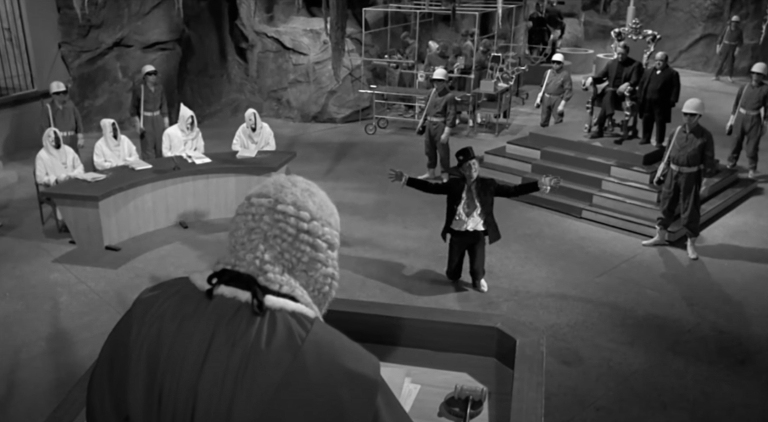
Is this the real Village?
The fact that the series’ ending is chaotic and strange is, therefore, perfectly in keeping with that. You could see “Fall Out” as a commentary on rebellion, or on nuclear proliferation, or on the relationship of the id to the ego and the superego. You could also just sit back and let the imagery flow past you, and draw from it the meaning that personally speaks to you, that allows you to relate the series to your own life and the personal and political struggles you face in the turbulent and strange times we live in.
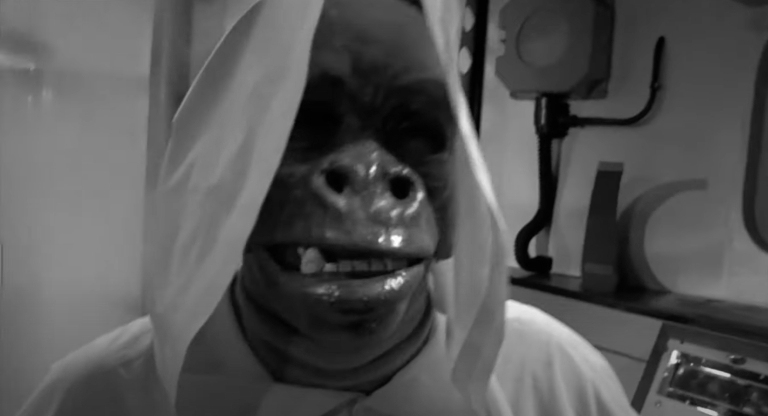
No, it doesn't have to make sense.
The point is not to over-interpret, or to seek a prescriptive meaning for the series. Does it always succeed? No. But does it fail? Only if you wanted a story with a nice neat ending, where The Prisoner is (definitely) John Drake and Number One is some bald-headed type in a Nehru suit stroking a fluffy cat. Otherwise, I’d say just turn on, tune in, and enjoy where the ride takes you.
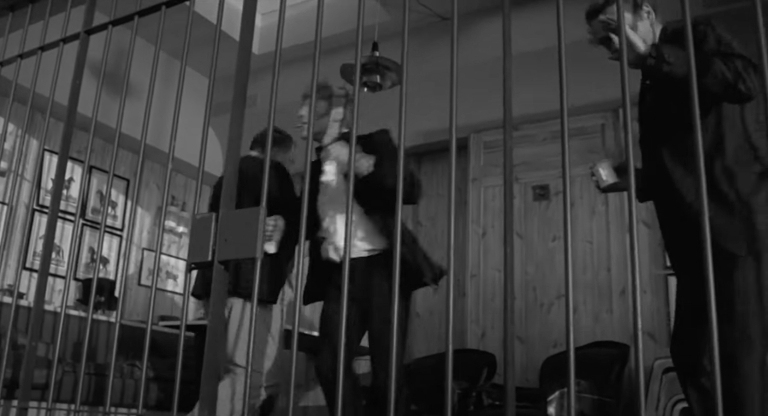
The Prisoner and friends enjoying the ride.
Six..er..four out of five stars.

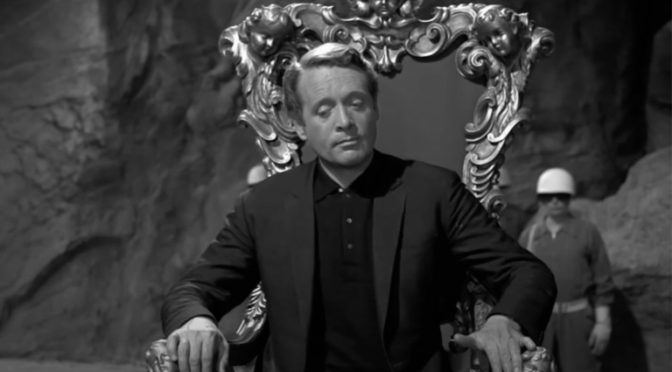
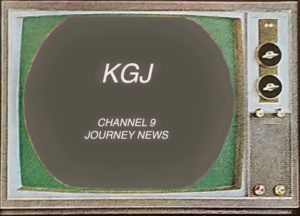

Fanzines may be fugitive publications, but Richard Schultz's En Garde — usually devoted to The Avengers — is to have an issue focusing entirely on The Prisoner, including a word for word transcript of the penultimate teleplay. That one is one of the most fascinating of the shows, in which No. 2 (played brilliantly by Leo McKern) attempts to regress No. 6 to childhood trust and dependency. Most of the rest of that issue of En Garde will be detailed summaries of the teleplays, inviting thoughtful consideration of the meaning of each and perhaps some conclusions about an overall trajectory of the series, which sometimes seems to have a fascinating story arc and sometimes seems merely to fill in an hour with something very dispensable — for example, the amusing but unimportant "Girl Who Was Death" — which seems to have been inspired by G. K. Chesterton's astonishing novel The Man Who Was Thursday.
A favorite teleplay of mine was "Many Happy Returns," in part because of the chutzpah of a long sequence with either no speech, no dialogue, at all, or else some unintelligible speech (Romani?). You have to have a lot of confidence in your actor and your production crew — and in your audience — to expect that people will stick with it. It had some of that Twilight Zone "Where Is Everybody?" eerieness.
Someone told me once that the Beatles wrote "All You Need Is Love" for a television program. If it was written for "Fall Out," though, the show's production crew didn't use as much of the song as one might have expected.
One of the things that sets modern totalitarian society apart from all earlier societies is highlighted by The Prisoner. It can be summed up in this bit of dialog not taken from the series but in its spirit:
Victim: Why have I been arrested? What am I supposed to be guilty of?
Secret police: We wouldn't have arrested you if you weren't guilty.
"not to mention the world’s strangest martial arts"
Ah, Kosho! A great sport.
I think The Prisoner is deserving of five stars, or a very high four. Really there’s nothing else like it on TV. Not every episode is golden, but the show is greater than the sum of its parts. It’s more intelligently written than Star Trek and is much harder to pigeonhole. This right here is some truly unique science fiction.
Sounds really strange and fascinating. Probably too weird to ever show up on American television, alas.